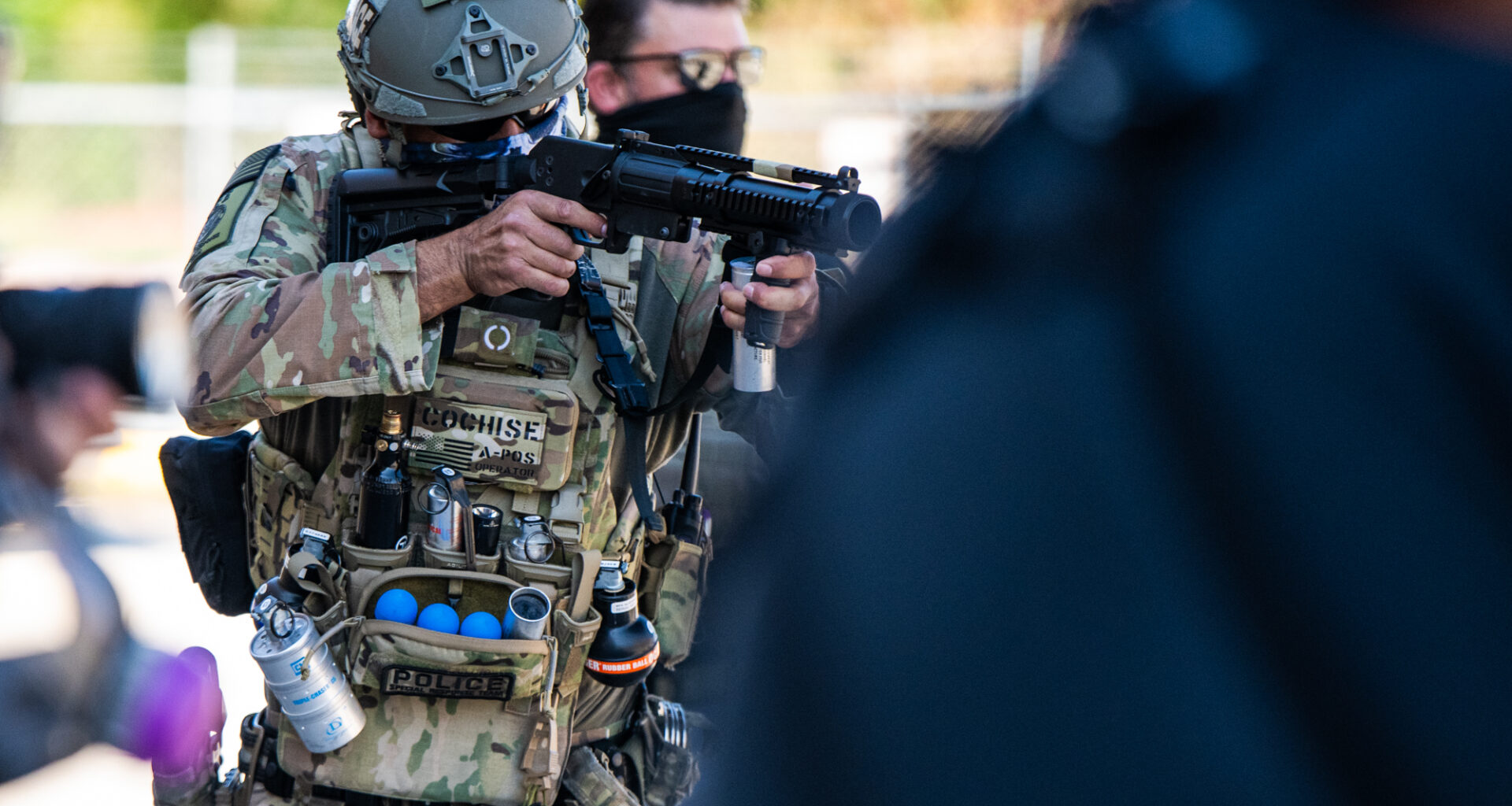CHICAGO — A federal judge ruled Thursday that federal agents can’t use tear gas, pepper spray and other weapons against journalists and peaceful protesters after Block Club Chicago and others sued the federal government over its actions against journalists outside the Broadview ICE detention facility.
The temporary ruling comes after four Block Club journalists were indiscriminately hit by pepper-spray bullets and tear-gassed by federal agents; an independent journalist was arrested; and a TV reporter’s vehicle was hit with a pepper ball, covering her face in chemicals — all as they covered protests outside the suburban Broadview facility.
The ruling comes after the Trump administration deployed scores of federal agents to Chicago to carry out a “blitz” of immigration enforcement, then mobilized National Guard troops, ostensibly to provide backup. Against that backdrop, the order from U.S. District Judge Sara Ellis confirms journalists’ right to report and the public’s right to protest under the First Amendment.
“Whatever lawlessness is occurring is not occurring by peaceful protesters” and journalists, Ellis said after reading her decision aloud. Some actions by federal agents “clearly violate the constitution,” the judge said. “Individuals are allowed to protest. They are allowed to speak. That is guaranteed by the First Amendment to our Constitution, and it is a bedrock right that upholds our democracy.”
In issuing the temporary restraining order, Ellis barred federal agents from using riot control weapons including pepper-spray bullets and tear gas against journalists and protesters who don’t pose a serious threat to law enforcement officers or others. She also prohibited agents from using physical force against journalists or arresting them unless they are suspected of committing a crime.
The order also requires federal agents to wear badges or other “visible identification” so the public can know who they are, with exceptions for those officers who work undercover.
The order applies to all U.S. Department of Homeland Security agents — including ICE and Border Patrol — across the Northern District of Illinois, which covers more than a dozen counties across the top of the state.
Sean Skedzielewski, an attorney with the U.S. Department of Justice representing the defendants, acknowledged the ruling but said the government remained opposed to it. “We think the entire [temporary restraining order] will be unworkable and cause a lot of problems,” he said.
After making her ruling at the Dirksen Federal Courthouse in Chicago Thursday, Ellis highlighted violence federal agents waged on protesters and journalists in Broadview and Chicago. She found the “chilling effect of defendants’ conduct” has impacted journalists’ ability to report in violation of the Constitution.
“My hope is that in entering this TRO and providing this guidance that we will no longer have the issues that we have been experiencing in the Northern District of Illinois over the last month,” the judge said.
While the order does not apply to the National Guard, Ellis also warned that she did not want to see “a workaround,” including troops acting in a way “prevented by this TRO.”
At a hearing Wednesday, Skedzielewski had asked the judge to limit the scope of the order to the area surrounding the Broadview facility, but Ellis refused.
The order is now set to be in place for at least the next two weeks, until an Oct. 23 hearing to consider a preliminary injunction in the case. If the judge backs it, the 14-day temporary restraining order would turn into a longer-lasting injunction while the case proceeds to final judgment.
In bringing the lawsuit as plaintiffs, Block Club Chicago was joined by the Chicago Headline Club, the Chicago Newspaper Guild Local 34071, The National Association of Broadcast Employees & Technicians and Communication Workers of America local 54041 as well as independent journalists and protesters. The groups are represented pro-bono by attorneys with Loevy & Loevy, the ACLU of Illinois and other firms. Read the full complaint here.
Attorneys for the plaintiffs argued federal agents sent to the area have used violent force against the press, elected officials, religious leaders and other people engaged in peaceful protest and other protected activities.
“Never in modern times has the federal government undermined bedrock constitutional protections on this scale, or usurped states’ police power by directing federal agents to carry out an illegal mission against the people for the government’s own benefit,” the complaint states.
Stephanie Lulay, Block Club executive editor and co-founder, said the newsroom’s ability to report on the protests at Broadview has been impacted by federal agents’ actions.
“We intend to continue to report on the protests, but our ability to do so, to the standards that we hold ourselves to, continues to be impacted by our fears of violence and arrests of our employees and contractors,” Lulay said. “We’re taking this step to protect our journalists and to assert our First Amendment right to report.”
In a statement, the Chicago Headline Club’s Board of Directors said the targeting of reporters and photographers covering demonstrations outside the Broadview ICE facility “is more than an assault on the press — it’s an assault on the public’s right to know. When journalists are silenced, the public loses access to the truth about government actions.”
The Chicago lawsuit follows a suit in Los Angeles brought by the L.A. Press Club and others alleging agents violated journalists’ First Amendment rights by using excessive force, including at ICE protests. A preliminary injunction was granted last month barring L.A. agents from arresting journalists and limiting their use of force.
In May, Block Club Chicago sued ICE and its parent department, Homeland Security, for violating the federal Freedom of Information Act, a law that protects citizens’ right to information about their government, after the federal agency withheld key arrest information even after a formal records request and multiple follow-up inquiries. That suit is ongoing.
Listen to the Block Club Chicago podcast:

